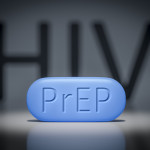Testing yourself for HIV—for free, in the privacy of your own home—is about to get a lot easier and more common, thanks to the largest HIV self-testing program in U.S. history. The Together TakeMeHome program aims to deliver 1 million rapid HIV tests across the country starting early next year.
The federal government, via the Centers for Disease Control and Prevention (CDC), has awarded $8.3 million per year to Together TakeMeHome for its five-year project (for a total of $41.5 million), according to a press release from Emory University in Atlanta, which will oversee the program.
Orders placed on the program’s website are then processed by Amazon, which delivers the tests in discreet packages, according to the press release. OraSure will provide the tests, which will be available in all 50 states and Puerto Rico.
BIG NEWS: We’ve been funded by @CDCgov to take @tmhtesting national! We are excited to bring HIV self-testing to the entire U.S. & Puerto Rico. Thanks to our partners @EmoryRollins, @NASTAD, and many others for this effort.
— Building Healthy Online Communities (@BHOCPartners) September 20, 2022
???? https://t.co/eskMwzZxzx#SelfTestingRevolution pic.twitter.com/FlnPM3ljO2
Nearly 40% of new HIV infections are transmitted by people unaware of their positive status, according to the CDC, which estimates that about 1.2 million people in the United States are living with HIV, including 158,500 who don’t know they have it.
Put another way, about one in eight people with HIV are unaware of their status, according to HIV.gov. “Knowledge of status is the gateway to engaging in prevention or treatment services that enable individuals, regardless of their status, to live a long and healthy life,” said Harold J. Phillips, MRP, director of the White House Office of National AIDS Policy, on HIV.gov.
#DYK that the CDC recommends that everyone aged 13 to 64 get tested for #HIV at least once in their lifetime? Find a testing site near you: https://t.co/bjCcGlBr2W pic.twitter.com/pQgjtEIZXc
— AIDSVu (@AIDSVu) September 14, 2022
In other words, it’s important to know whether you have HIV. If you’re positive, then you can take medication—daily pills or long-acting injections—that slow disease progression and reduce your viral load. People living with HIV that is undetectable not only live longer and healthier lives, they also do not transmit HIV sexually, a fact referred to as Undetectable Equals Untransmittable, or U=U.
“HIV self-testing is a key innovation that supports the national goal to diagnose all people with HIV as early as possible,” said Robyn Neblett Fanfair, MD, MPH, acting director of the CDC’s Division of HIV Prevention, in the press release. “Evidence demonstrates high demand for HIV self-tests—particularly among people who have never previously tested for HIV and populations that are not equitably reached by HIV testing, effective treatment and prevention tools.”
Thus, the success and popularity of home self-tests. In fact, you may already be familiar with TakeMeHome, a collaboration between Building Healthy Online Communities, Emory University and the National Alliance of State & Territorial AIDS Directors.
In the spring of 2021, TakeMeHome began offering free home testing kits for HIV and sexually transmitted infections (STIs) such as chlamydia, gonorrhea and syphilis. (You can still order tests on TakeMeHome.org.) As we reported in April 2021, STI rates have been higher than ever—and they continue to climb—yet testing has dropped because clinics closed due to COVID-19, and many health care workers directed their efforts to battle that epidemic. Thus, it has become more important to offer at-home self-tests to the public.
That program saw success and laid the groundwork for the scaled-up Together TakeMeHome.
The video below, by OraQuick, explains HIV self-tests and appeared along with the first TakeMeHome launch:
As part of the new program, a team at Emory University will monitor how many tests are ordered, how many diagnoses are made and how many people are linked to care or, if negative, enroll in pre-exposure prophylaxis (PrEP), the pills and long-term injections that prevent a person from acquiring HIV.
There’s a good chance you’re already familiar with the work of Emory University’s Rollins School of Public Health—the university is behind AIDSVu.org and HepVu.org, where you can find sharable graphics (like the one embedded earlier in this article) and interactive maps based on HIV and hepatitis statistics.
In related news, June 27 marks National HIV Testing Day; this year’s theme was “HIV Testing Is Self-Care.” For a collection of similar articles‚including “Is It Time for Free HIV Self Tests From the Government?” from February 2022—click #HIV Testing. Also, POZ Personals has collaborated with Building Healthy Online Communities in the past. For more, see “Queer Dating Apps Come Together for Fighting Online Stigma in NiceAF Campaign.”







Comments
Comments